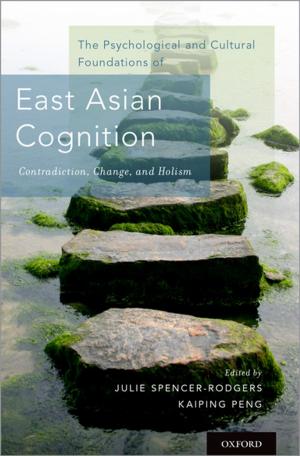Hinglaj Devi
Identity, Change, and Solidification at a Hindu Temple in Pakistan
Nonfiction, Religion & Spirituality, Eastern Religions, Hinduism, Social & Cultural Studies, Social Science, Anthropology| Author: | Jurgen Schaflechner | ISBN: | 9780190850548 |
| Publisher: | Oxford University Press | Publication: | December 18, 2017 |
| Imprint: | Oxford University Press | Language: | English |
| Author: | Jurgen Schaflechner |
| ISBN: | 9780190850548 |
| Publisher: | Oxford University Press |
| Publication: | December 18, 2017 |
| Imprint: | Oxford University Press |
| Language: | English |
About two hundred kilometers west of the city of Karachi, in the desert of Baluchistan, Pakistan, sits the shrine of the Hindu Goddess Hinglaj. Despite the temple's ancient Hindu and Muslim history, an annual festival at Hinglaj has only been established within the last three decades, in part because of the construction of the Makran Coastal Highway, which connects the distant rural shrine with urban Pakistan. Now, an increasingly confident minority Hindu community has claimed Hinglaj as their main religious center, a site for undisturbed religious performance and expression. In Hinglaj Devi, Jürgen Schaflechner studies literary sources in Hindi, Sanskrit, Sindhi, and Urdu alongside extensive ethnographical research at the shrine, examining the political and cultural influences at work at the temple and tracking the remote desert shrine's rapid ascent to its current status as the most influential Hindu pilgrimage site in Pakistan. Schaflechner introduces the unique character of this place of pilgrimage and shows its modern importance not only for Hindus, but also for Muslims and Sindhi nationalists. Ultimately, this is an investigation of the Pakistani Hindu community's beliefs and practices at their largest place of worship in the Islamic Republic today--a topic of increasing importance to Pakistan's contemporary society.
About two hundred kilometers west of the city of Karachi, in the desert of Baluchistan, Pakistan, sits the shrine of the Hindu Goddess Hinglaj. Despite the temple's ancient Hindu and Muslim history, an annual festival at Hinglaj has only been established within the last three decades, in part because of the construction of the Makran Coastal Highway, which connects the distant rural shrine with urban Pakistan. Now, an increasingly confident minority Hindu community has claimed Hinglaj as their main religious center, a site for undisturbed religious performance and expression. In Hinglaj Devi, Jürgen Schaflechner studies literary sources in Hindi, Sanskrit, Sindhi, and Urdu alongside extensive ethnographical research at the shrine, examining the political and cultural influences at work at the temple and tracking the remote desert shrine's rapid ascent to its current status as the most influential Hindu pilgrimage site in Pakistan. Schaflechner introduces the unique character of this place of pilgrimage and shows its modern importance not only for Hindus, but also for Muslims and Sindhi nationalists. Ultimately, this is an investigation of the Pakistani Hindu community's beliefs and practices at their largest place of worship in the Islamic Republic today--a topic of increasing importance to Pakistan's contemporary society.















